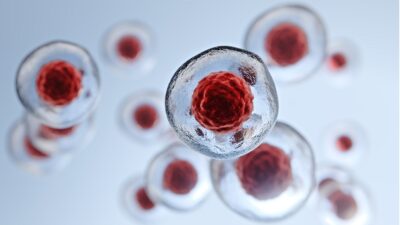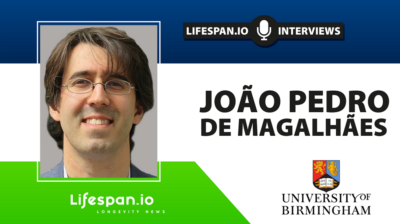
Category: Exercise
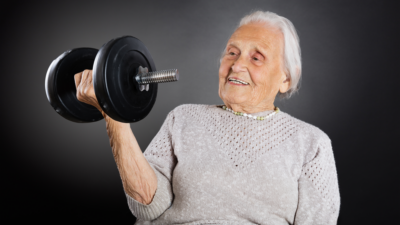
Bodybuilding Helps Older People Stay Strong in Human Study
In a controlled human study published in Frontiers in Public Health, Iranian researchers have demonstrated that resistance training and creatine supplementation are effective in helping older people retain their
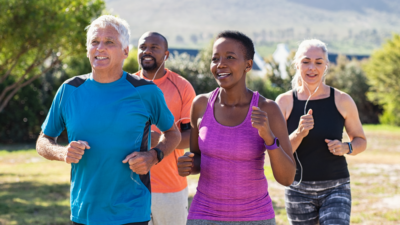
New Clock: People Who Exercise Are Biologically Younger
Using a DNA methylation clock based on fitness, researchers publishing in GeroScience have determined that people who exercise regularly are biologically younger on average [1]. Chronological and biological aging The number

Physical Activity, Sleeping, Sedentary Behavior, and Aging
Regular exercise, getting enough sleep, and avoiding sedentary behavior are frequently reported as being important in determining how slowly we age. A team of researchers recently set out to determine
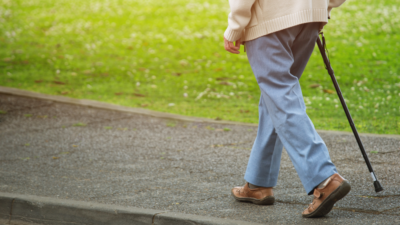
Daily Step Count, Less Mortality, Diminishing Returns
A new study using wearable accelerometers suggests that you don’t have to clock extreme numbers of steps every day to stay healthy [1]. Do you always need to hit the
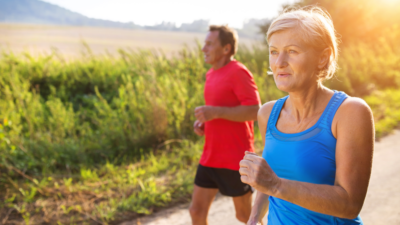
Long-Term Resistance Exercise Increases Autophagy
In a new systemic review published in Autophagy Reports, researchers have demonstrated that exercise plays a role in regulating autophagy, depending on its type [1]. Manipulating autophagy Disabled autophagy was

Epigenetic Biomarker for Measuring Aging Through Fitness
A new biomarker for measuring biological aging based on physical fitness has been published in Aging, and it has been found to be useful in predicting health issues. A clock

Exercise and Supplements Against Age-Related Inflammation
In a new systematic review, researchers have shown that combining some dietary supplements and exercise might be beneficial for people over the age of 60 [1]. A double-edged sword Chronic

Midday Exercise Might Be Better In Preventing Mortality
Scientists have found that the time of day when you exercise might be an important factor in lowering all-cause and cardiovascular mortality [1]. Exercise is good, but what about timing?

Silly Walking for Serious Exercise
Researchers have shown that a particular walking style that many people immediately recognize can count as high-intensity exercise [1]. Does exercise have to be boring? In the fight against aging,

Short Bouts of Vigorous Activity May Reduce Mortality Risk
In a study published in Nature Medicine, scientists have shown that short bouts of everyday vigorous physical activity, such as stair climbing, are associated with a considerable reduction in mortality

Snowsports for Improved Balance
In a new study published in Journal of Science and Medicine in Sport (JSAMS) Plus, researchers have shown that participating in such sports as snowboarding and skiing might counteract age-associated

Exercise and Healthy Diet Cannot Replace Each Other
In a large-scale study, scientists have shown that exercise and good diet affect mortality independently, showing that you need both to stay healthy [1]. Is vigorous exercise special? Exercise is

Metformin Is Linked to Weaker Exercise Improvements
A study published in Obesity suggests that metformin may decrease the gains in cardiorespiratory performance brought on by exercise. The world’s most common diabetes drug Metabolic syndrome, which is represented

Drug Leads to Drastic Weight Loss With Diet and Exercise
A large Phase 3 study published in the New England Journal of Medicine shows that an existing drug combined with a healthy diet and mild exercise leads to an average

Exercise Improves Cognition Depending on Type and Amount
In a new review paper, scientists show that exercise can alleviate age-related cognitive decline, but not all types of exercise are created equal [1]. Watch your head Lifestyle choices, such

Bodybuilding Helps Older People Stay Strong in Human Study
In a controlled human study published in Frontiers in Public Health, Iranian researchers have demonstrated that resistance training and creatine supplementation are effective in helping older people retain their strength. Strength training isn’t just for athletes It is widely known that weightlifting and other resistance

New Clock: People Who Exercise Are Biologically Younger
Using a DNA methylation clock based on fitness, researchers publishing in GeroScience have determined that people who exercise regularly are biologically younger on average [1]. Chronological and biological aging The number of candles on a birthday cake mark a person’s chronological age, but that person’s biological age

Physical Activity, Sleeping, Sedentary Behavior, and Aging
Regular exercise, getting enough sleep, and avoiding sedentary behavior are frequently reported as being important in determining how slowly we age. A team of researchers recently set out to determine the link between physical activity, sleeping, and sedentary behavior [1]. Finding out if sleep, exercise, and

Daily Step Count, Less Mortality, Diminishing Returns
A new study using wearable accelerometers suggests that you don’t have to clock extreme numbers of steps every day to stay healthy [1]. Do you always need to hit the target? A tight association between physical activity and health is widely known [2]. In fact, staying

Long-Term Resistance Exercise Increases Autophagy
In a new systemic review published in Autophagy Reports, researchers have demonstrated that exercise plays a role in regulating autophagy, depending on its type [1]. Manipulating autophagy Disabled autophagy was recently acknowledged as a hallmark of aging. Indeed, boosting the ability of cells to get rid

Epigenetic Biomarker for Measuring Aging Through Fitness
A new biomarker for measuring biological aging based on physical fitness has been published in Aging, and it has been found to be useful in predicting health issues. A clock with a different purpose Epigenetic clocks are most notable for their direct relationship to biological age,

Exercise and Supplements Against Age-Related Inflammation
In a new systematic review, researchers have shown that combining some dietary supplements and exercise might be beneficial for people over the age of 60 [1]. A double-edged sword Chronic low-level inflammation accompanies many hereditary and age-associated diseases. Inflammation also plays an important role in ‘healthy’

Midday Exercise Might Be Better In Preventing Mortality
Scientists have found that the time of day when you exercise might be an important factor in lowering all-cause and cardiovascular mortality [1]. Exercise is good, but what about timing? The value of physical activity for health and longevity is unquestionable [2], even if some doubts

Silly Walking for Serious Exercise
Researchers have shown that a particular walking style that many people immediately recognize can count as high-intensity exercise [1]. Does exercise have to be boring? In the fight against aging, anything goes. As we have reported numerous times, exercise is one of the most effective anti-aging

Short Bouts of Vigorous Activity May Reduce Mortality Risk
In a study published in Nature Medicine, scientists have shown that short bouts of everyday vigorous physical activity, such as stair climbing, are associated with a considerable reduction in mortality risk, especially in cardiovascular mortality [1]. Everyday activities and health Exercise is one of the most

Snowsports for Improved Balance
In a new study published in Journal of Science and Medicine in Sport (JSAMS) Plus, researchers have shown that participating in such sports as snowboarding and skiing might counteract age-associated proprioception decline [1]. Ankles keep you balanced It is no secret that exercise is one of

Exercise and Healthy Diet Cannot Replace Each Other
In a large-scale study, scientists have shown that exercise and good diet affect mortality independently, showing that you need both to stay healthy [1]. Is vigorous exercise special? Exercise is good for you, and so is a healthy diet. Moreover, those are probably the only currently

Metformin Is Linked to Weaker Exercise Improvements
A study published in Obesity suggests that metformin may decrease the gains in cardiorespiratory performance brought on by exercise. The world’s most common diabetes drug Metabolic syndrome, which is represented by the four connected symptoms of obesity, excessive fats in the bloodstream (dyslipidemia), high blood pressure

Drug Leads to Drastic Weight Loss With Diet and Exercise
A large Phase 3 study published in the New England Journal of Medicine shows that an existing drug combined with a healthy diet and mild exercise leads to an average weight loss of 20% [1]. Diet and exercise are not always enough Being a known comorbid

Exercise Improves Cognition Depending on Type and Amount
In a new review paper, scientists show that exercise can alleviate age-related cognitive decline, but not all types of exercise are created equal [1]. Watch your head Lifestyle choices, such as exercise and diet, are the most powerful anti-aging interventions currently available to us, and they

